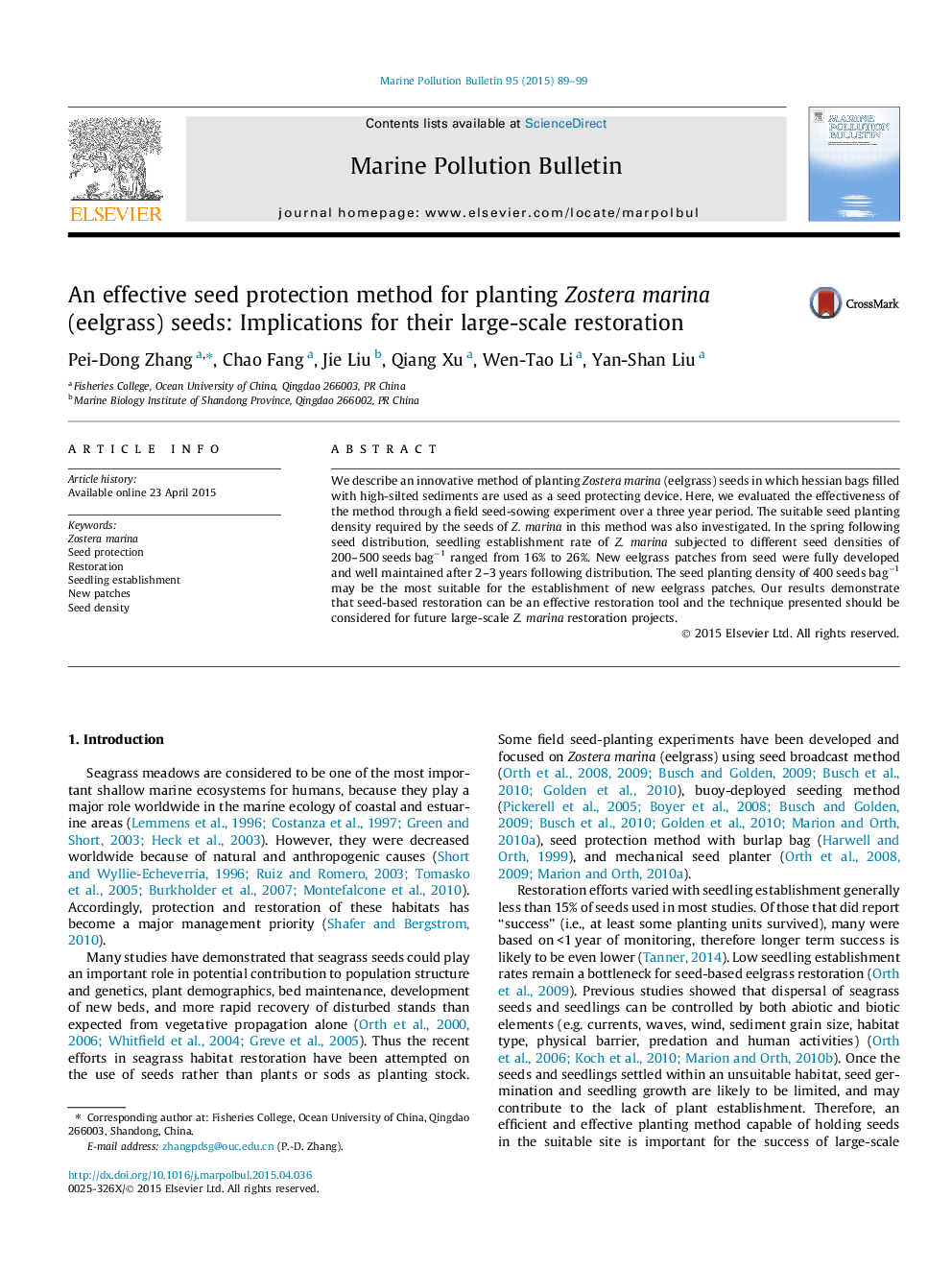| Article ID | Journal | Published Year | Pages | File Type |
|---|---|---|---|---|
| 6357280 | Marine Pollution Bulletin | 2015 | 11 Pages |
Abstract
We describe an innovative method of planting Zostera marina (eelgrass) seeds in which hessian bags filled with high-silted sediments are used as a seed protecting device. Here, we evaluated the effectiveness of the method through a field seed-sowing experiment over a three year period. The suitable seed planting density required by the seeds of Z. marina in this method was also investigated. In the spring following seed distribution, seedling establishment rate of Z. marina subjected to different seed densities of 200-500 seeds bagâ1 ranged from 16% to 26%. New eelgrass patches from seed were fully developed and well maintained after 2-3 years following distribution. The seed planting density of 400 seeds bagâ1 may be the most suitable for the establishment of new eelgrass patches. Our results demonstrate that seed-based restoration can be an effective restoration tool and the technique presented should be considered for future large-scale Z. marina restoration projects.
Related Topics
Physical Sciences and Engineering
Earth and Planetary Sciences
Oceanography
Authors
Pei-Dong Zhang, Chao Fang, Jie Liu, Qiang Xu, Wen-Tao Li, Yan-Shan Liu,
